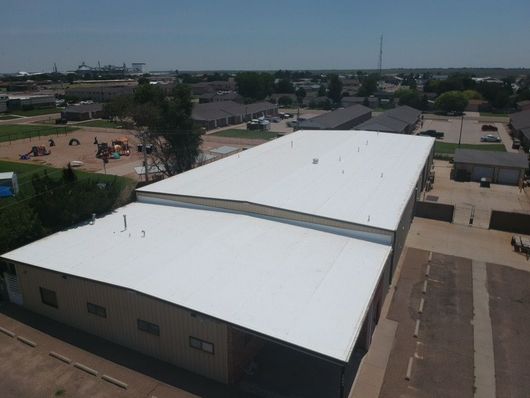For any commercial property, the roof is essential. It not only shields your building from the elements but can also help lower repair expenses and boost energy efficiency. In this guide, we’ll delve into the best commercial roofing materials and explain why investing in quality roofing is key to ensuring the success of your property.
Understanding Your Commercial Roofing Needs
Commercial roofs have unique requirements compared to residential roofs. Factors such as climate, building type, and business operations play a major role in determining the best roofing system. Whether you’re managing a warehouse, office, or retail space, identifying your specific needs will help you select the right roof for your property.
Top Commercial Roofing Materials
There are a few top roofing materials commonly used for commercial properties. Each comes with its unique advantages, depending on your needs and budget.
1. Metal Roofing
Metal roofs are a top choice for commercial buildings due to their durability and energy efficiency. Steel and aluminum are the most common materials used, offering resistance to harsh weather conditions and excellent leak prevention. The reflective nature of metal roofs helps keep buildings cooler, lowering energy bills.
Flat Roof Systems
Flat roofing systems are popular for commercial buildings due to their affordability and simple installation. These roofs are particularly suitable for buildings with contemporary architecture. Materials like TPO, EPDM, and PVC are commonly used, offering excellent waterproofing and insulation. Proper maintenance and drainage are essential for their longevity.
Shingle Roofs for Commercial Properties
Shingle roofing is not as common for large commercial buildings, but it can be a good choice for smaller properties or those that need a traditional look. Asphalt shingles are affordable and come in various colors and styles, though they don't offer the same longevity as metal or flat roofs.
Roof Installation Process and Maintenance Tips
After selecting the right roofing material, the next step is installation. It’s essential to hire an experienced and licensed roofing contractor to ensure proper installation. This will help prevent leaks and ensure your roof lasts as long as possible.
Regular maintenance is also essential. Inspections should be done at least twice a year, especially after harsh weather events. Look for signs of damage, such as missing shingles, cracks, or pooling water. Cleaning gutters and removing debris can also prevent long-term damage and extend the life of your commercial roof.

The Importance of Investing in High-Quality Roofing
A good-quality roof is a sound investment. It offers protection from leaks that can cause expensive damage to your building and inventory. It also boosts energy efficiency, making your property more sustainable and lowering costs. A well-maintained roof can even increase your building's value and prevent costly repairs in the future.
Conclusion: Choosing the Right Commercial Roofer
Finding the right roofing contractor is key to the success of your project. Seek out a licensed, experienced roofer who understands the unique requirements of commercial properties and can provide expert advice. The right contractor will also assist with installation and maintenance, ensuring the longevity of your roof.
Looking to replace your commercial roof? Contact us for a free consultation, and we’ll help you choose the perfect roofing solution for your needs!
#CommercialRoofing #RoofingMaterials #BusinessProtection #MetalRoofing #FlatRoofing #RoofInstallation #EnergyEfficiency #RoofMaintenance